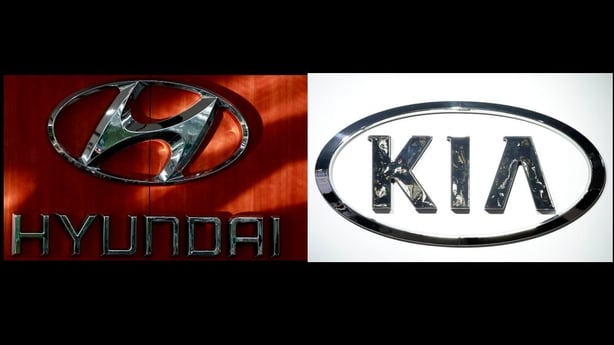South Korea's Hyundai Motor surprised the market today by posting its first quarterly net loss in at least eight years as its vehicle sales skidded in the key China market.
China's sputtering car market adds to the troubles of Hyundai, which has been already grappling with the lack of attractive models and strong brands in its biggest market.
The company expected profitability to improve this year driven by new models, after posting its sixth consecutive annual net profit fall in 2018.
Hyundai, which together with affiliate Kia Motors, used to be the third-biggest automaker in China, is now saddled with overcapacity.
Its 2018 China sales fell short of target and reached only half of its total production capacity.
The world's fifth biggest automaker reported a net loss of 129.8 billion won ($114.95m) for the fourth quarter ended in December compared with the average 784 billion profit estimate of 14 analysts based on I/B/E/S Refinitiv data.
It was the automaker's first net loss since it changed the accounting method in 2011.
Hyundair said its quarterly operating profit fell 35% to 501 billion won as its sales climbed 5% to 25.67 trillion won.
It blamed weakness in emerging market currencies and rising investments as well as one-off costs such as corporate taxes for the weak results.
China, the world's biggest car market, contracted for the first time in more than two decades last year, hit by the Sino-US trade war and the phasing out of purchase tax cuts on smaller cars.
Hyundai's China sales tumbled 23% in the fourth quarter, lagging the wider market.
For the whole year, Hyundai sold 790,000 vehicles in China - lower than its target of 900,000 and almost flat from its six-year-low of 785,000 in 2017 when Seoul's diplomatic row with Beijing hurt consumer sentiment about Korean products.
Hyundai's total capacity is 1.65 million vehicles in China.

The automaker plans to boost exports from its Chinese factories, vice president Zayong Koo told a conference call. It also aims to expand China sales by 9% this year by launching models such as the redesigned Sonata sedan and ix25 SUV in China.
Hyundai also plans to increase the number of its new energy models available in China to five in 2019 from the current two.
Last year, Hyundai's longtime China vice chairman Hsueh Yung-hsing resigned as part of a sweeping executive reshuffle under heir apparent Euisun Chung.
Hyundai also said today that its US sales slipped 1% last year, versus the market's 0.2% fall, with the automaker's redesigned Santa Fe SUV failing to live up to its expectations.
The automaker is also bracing for potential US tariffs on vehicle imports and a US investigation over how it handled a recall over engine defects.
Hyundai and Kia, which together rank fifth in global sales, aim for a 3% sales growth this year - another tepid rise after they missed their sales goal for a fourth consecutive year last year.

